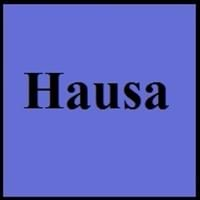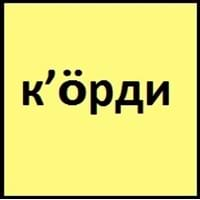Hausa and Kurdish
Countries
Nigeria
Iraq, Kurdistan
National Language
Gambia, Nigeria
Azerbaijan, Georgia, Iran, Iraq, Syria, Turkey
Second Language
Nigeria
Not spoken in any of the countries
Speaking Continents
Africa
Middle East
Minority Language
Benin, Cameroon, Cote d'Ivoire, Ghana, Niger, Sudan, Togo
Not spoken in any of the countries
Regulated By
Not Available
Not Available
Interesting Facts
- Hausa language is the most important and the best known of the Chadic branch.
- There are about one-fourth of Hausa words come from Arabic.
- The vocabulary in Kurdish is of Iranian origin.
- In the middle East, Kurdish is the fourth largest ethnic group.
Similar To
Not Available
Farsi Language
Derived From
Not Available
Not Available
Alphabets in
Hausa-Alphabets.jpg#200
Kurdish-Alphabets.jpg#200
Scripts
Latin
Arabic, Cyrillic, Latin
Writing Direction
Not Available
Right-To-Left, Horizontal
How Are You?
yaya dai
Tu çawa yî?
Good Night
mai kyau dare
Şev xweş
Good Evening
barka da yamma
Evare baş
Good Afternoon
barka da rana
Nee-wa-rowt bash
Good Morning
mai kyau safe
Bayanit bash
Please
Don Allah
Bê zehmet
I Love You
Ina son ku
Ez te hez dikem
Excuse Me
gafara dai
Bê zehmet
Dialect 1
Gaananci
Northern Kurdish
Where They Speak
Ghana
northern Iraq, northern Syria, northwest Iran, southeast Turkey
How Many People Speak
Not Available
Dialect 2
Kurhwayanci
Central Kurdish
Where They Speak
Niger
Iraq, Kurdistan Province of western Iran
How Many People Speak
Not Available
Dialect 3
Daragaram
Southern Kurdish
Where They Speak
Niger
Eastern Iraq
How Many People Speak
Not Available
Second Language Speakers
Not Available
Native Name
حَوْسَ (ḥawsa)
Kurdí / کوردی / к’öрди
Alternative Names
Abakwariga, Habe, Haoussa, Hausawa, Kado, Mgbakpa
Not Available
French Name
haoussa
kurde
German Name
Haussa-Sprache
Kurdisch
Pronunciation
Not Available
Not Available
Ethnicity
Hausa–Fulani people
Kurds
Origin
14
16th century CE
Language Family
Afro-Asiatic Family
Indo-European Family
Subgroup
Chadic
Indo-Iranian
Branch
Not Available
Not Available
Early Forms
No early forms
Not Available
Standard Forms
Hausa
Kurdish
Language Position
Not Available
Signed Forms
Not Available
Not Available
Scope
Individual
Macrolanguage
ISO 639 6
Not Available
Not Available
Glottocode
haus1257
kurd1259
Linguasphere
19-HAA-b
58-AAA-a
Language Type
Living
Living
Language Linguistic Typology
Subject-Verb-Object
Subject-Object-Verb
Language Morphological Typology
Fusional
Not Available
All Hausa and Kurdish Dialects
Most languages have dialects where each dialect differ from other dialect with respect to grammar and vocabulary. Here you will get to know all Hausa and Kurdish dialects. Various dialects of Hausa and Kurdish language differ in their pronunciations and words. Dialects of Hausa are spoken in different Hausa Speaking Countries whereas Kurdish Dialects are spoken in different Kurdish speaking countries. Also the number of people speaking Hausa vs Kurdish Dialects varies from few thousands to many millions. Some of the Hausa dialects include: Gaananci, Kurhwayanci. Kurdish dialects include: Northern Kurdish , Central Kurdish. Also learn about dialects in South American Languages and North American Languages.
Hausa and Kurdish Speaking population
Hausa and Kurdish speaking population is one of the factors based on which Hausa and Kurdish languages can be compared. The total count of Hausa and Kurdish Speaking population in percentage is also given. The percentage of people speaking Hausa language is 0.52 % whereas the percentage of people speaking Kurdish language is 0.31 %. When we compare the speaking population of any two languages we get to know which of two languages is more popular. Find more details about how many people speak Hausa and Kurdish on Hausa vs Kurdish where you will get native speakers, speaking population in percentage and native names.
Hausa and Kurdish Language Codes
Hausa and Kurdish language codes are used in those applications where using language names are tedious. Hausa and Kurdish Language Codes include all the international language codes, glottocodes and linguasphere.





